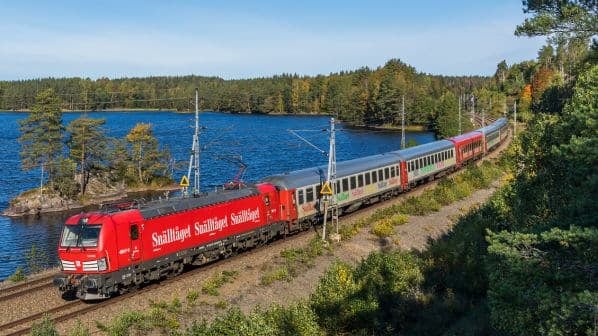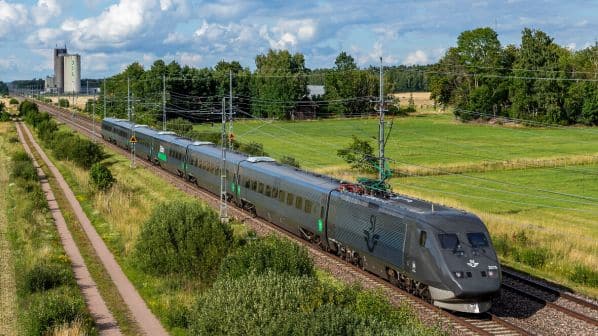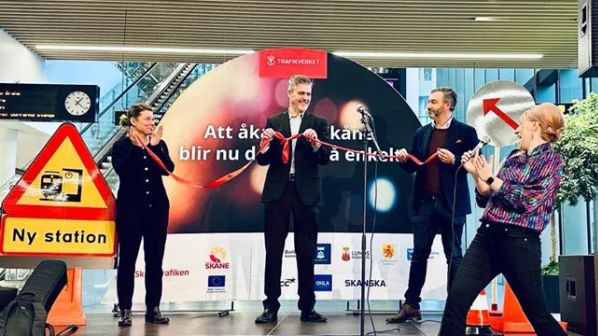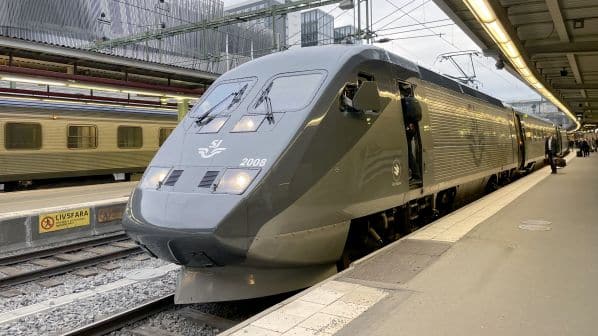PASSENGER train punctuality in Sweden has plummeted to its lowest level since current records began in 2001, according to official statistics compiled by infrastructure manager Trafikverket.
In 2023 only 88% of trains were on time, falling below 90% for the first time since 2018 and affecting 9000 services in total. Passenger dissatisfaction is soaring.
Short-distance trains, usually the most reliable services, saw the largest decline in punctuality, falling by 3.3 percentage points from 2022 to just over 91%, the lowest figure ever recorded. Long-distance punctuality was 71%, also an all-time low.
According to analysis by Swedish Television (SVT), passengers lost a total of 3.85 million minutes in delays over 3 minutes. This does not include cancellations.
Private operator Snälltåget’s morning services between Malmö and Stockholm performed worst, with each train running 30 minutes late on average. State-owned operator SJ’s evening trains between the two cities were delayed by an average of 20 minutes.
Snälltåget’s head of marketing, Mr Marco Andersson, says that problems with Trafikverket’s train planning tool mean that there is very little margin to recover any delay.
Rolling stock reliability has also added to these problems as Sweden’s harshest winter in over a decade took its toll.
Poor infrastructure condition is another factor, including problems with the ageing ATC signalling system. Trafikverket has identified replacing ATC as a top priority and says that if this not done by 2040, over 50% of the network will have to be taken out of service due to a lack of spare parts and a shortage of qualified maintenance staff.
Insufficient track maintenance is suspected to be an underlying cause of derailments that have resulted in major disruption.
Two derailments took place this winter on the Ore Line connecting Kiruna in Sweden with the Norwegian port of Narvik. The latest incident is currently costing mining company LKAB an estimated SKr 100,000 ($US 9600) per day.
“It’s like driving on a road full of holes,” Snälltåget driver, Mr Mikael Eriksson, told SVT. “I’ve been doing this for 35 years and it’s getting worse all the time.”
“This is virtually a national meltdown,” said SJ CEO, Ms Monica Lingegård, on SVT’s Agenda programme. “The people of Sweden really deserve a better railway.”
SJ is planning record investment in its train fleet to improve its services, but Lingegård says this will not be enough and that Trafikverket needs to do more.
“I cannot agree that this is a meltdown,” was the response of Trafikverket director general, Mr Roberto Maiorana. “If you look at the infrastructure, we’re doing more than we’ve ever done.”
Trafikverket estimates that it would need SKr 16.2bn a year to catch up with the maintenance backlog that has built up over last 12 years.
However, the latest government budget only allocates SKr 13bn to maintenance, slightly above what Trafikverket says is needed to maintain current network capacity. Passenger traffic is forecast to grow by 28% by 2040.
Sweden’s minister for Infrastructure, Mr Andreas Carlson, has been unable to confirm that Trafikverket will receive the funding it requires. The government intends to “work through” the maintenance backlog, he says.




